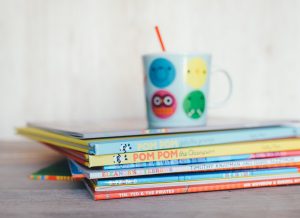 I was way too young when I started Prep in 1979 at a Victorian Primary School. At 4 and a half, my uniform was a tent and I was a dwarf compared to the other kids. I was the youngest and the smallest in my class.
I was way too young when I started Prep in 1979 at a Victorian Primary School. At 4 and a half, my uniform was a tent and I was a dwarf compared to the other kids. I was the youngest and the smallest in my class.
With two younger sisters at home, I must have seemed very mature to my parents. My speech was good, I could draw well and was starting to write. I was a whiz on the monkey bars, independent and adventurous in the playground.
Unfortunately, I wasn’t ready for the emotional and social demands of a Primary School.
My main obstacle was shyness. I didn’t have the confidence to negotiate the playground, make new friends, sit still while in (boring) assembly and handle the bullies, who would call me “baby” – well …. because I am sure I looked like a baby!
Lucky for me, we moved countries and I was able to start Prep again. Doing so set me up for a good foundation for learning and I confidently moved through the rest of school.
My own experience plus my work as a child psychologist has piqued my interest in school readiness.
Internationally, some kids start school as young as 3 (England) and as late as 7 (Finland).
In Australia, the starting age ranges from 4 to 6, depending on where you live and the social and cultural norms. Since the introduction of the Australian Curriculum, lessons have become more difficult in Prep, and generally less play-based.
One headmaster recently commented that 10 years ago the current Prep curriculum was taught to Grade 1 children.
All children are different. They develop at different rates and so making a decision about school readiness based purely on age seems too broad. Luckily, we don’t have to start our children in school if we don’t believe that they are developmentally ready.
So, how do you decide if your child is ready to start Prep?
As well as seeking input from your child’s kindergarten teacher, consider the following points…
- Coordination skills (fine and gross motor). In Prep, kids spend a lot of time holding a pencil. Can they do this yet? If not, do you feel they will be able to learn this vital skill quickly?
- Attention and concentration. Teachers expect kids to be able to sit still and listen to them when they are teaching, and sit in their chairs and focus when doing independent work. Kids who want to be moving around a lot might benefit from one more year of play-based learning at childcare or kindergarten. Unfortunately, very active kids, especially boys, can be labelled as “naughty” or “difficult” if they want to move their bodies too much. This can affect their self esteem and their motivation to attend school.
- Language. Much of the learning in Prep is language-based. If a child can speak and understand speech well, they are better able to pick up reading, spelling and writing and follow the teacher’s instructions. Sometimes, if speech is delayed, having another year of kindergarten or childcare can give them time to develop their speech at their own pace.
- Concentration and emotion regulation skills. As kids mature, they get better at regulating their own emotions without parental support, and concentrating for longer periods of time. For school, it is important for kids to get a handle on anger and anxiety. Without control of anger, kids can get into fights, lash out at other kids and become easily upset if something doesn’t go their way. In contrast, shy kids can find it hard to separate from Mum and Dad, lack the confidence to talk in class and to make new friends in the playground.
- Independence. Whilst kids will learn to be more independent at school, some tasks should be mastered before going to school such as going to the toilet, asking for help from a teacher, dressing and undressing themselves (e.g. for swimming lessons) and eating and drinking independently.
- Physical appearance. Factors like size and general health can affect children’s confidence at school.
The decision about a child’s readiness for school is a difficult one for parents. Luckily, the decision to start school doesn’t need to occur until the year your child is due to start.
I have a friend who decided to give her 4 year old son, Billy, another year of kindergarten after watching him on a January play date with his soon-to-be Prep classmates, who were all taller, more confident and socially advanced (most were 5 or older). Billy stood timidly on the sidelines unable to join in the play. One year later, a more confident and socially mature 5 year old Billy started Prep. Billy is now thriving at school.
I have treated many 8 year old children for anxiety. A consistent trend I notice is that these kids are often the youngest in their grade. They commonly struggle with the social nuances of friendships in the playground and the class work. It makes me wonder whether the anxiety would be there at all if they had started school when they were a year older.
If you are concerned about whether your child will be ready to start school next year, start talking with your child’s teacher, the Primary school and other health professionals, like a child psychologist. They can help you to make the decision about your child’s development and readiness.
